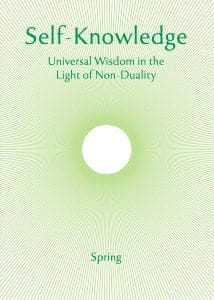The Nature of Truth
Why do we bother to ask the question: ‘What is Truth?’ We are obliged to do so by one of the most fundamental urges in the human mind. Whenever we see an unfamiliar object, we ask: ‘What is it?’ Whenever we come across a new person in our social life, we ask a friend: ‘Who…
Read MoreAwakening the Higher Intuition
One of the things that science has taught us is that we can perceive nothing unless we have the necessary sense organs. We are completely unaware of those parts of the universe which we are not equipped to perceive. One instance of this is the discovery by the use of radio telescopes of many radio…
Read MoreThe Reflection Theory
Based on teachings in volume three of the Shankara Source Book (on the Soul) The reflection theory is an account of human nature for those who are seeking the highest wisdom. It shows how this wisdom is essentially present in every human being, and how the mind can be progressively adjusted so that what is…
Read MoreThe Friend
Do not give up your stay In the street of the Beloved Till your last breath. But mind, be faithful, be faithful. I wish all my friends to know the import of this verse. A great principle is involved. The friend is the one in whom you can trust implicitly under any circumstances. Even if…
Read MoreImages of Transformation
A poem by Hari Prasad Shastri O moon of delight! I was a weary wind Blowing over an equatorial desert, Charged with consuming heat and blinding sand. You opened to me your garden, full of violets, Jasmine, syringa and cherry blossom. I wafted over the field of your heart and was relieved By the…
Read MoreThe Light Behind the Mind
There are two entities which comprise the whole Universe, the perceptible and the imperceptible. The perceptible is only a small part of the imperceptible, that which is unimaginable. These two entities are really one. It is not that they have split themselves into parts. They are like two aspects of the same coin. At the…
Read MoreNon-Duality—Preparation and Achievement
The greatest achievements are usually hard-won. The achievement that surpasses all others is the awakening to the higher self-knowledge. This is to realise, as a matter of direct experience, that one’s innermost Self is not different from the Reality which underlies the whole cosmos. Through sustained efforts and an ever-deepening interest in the goal, we…
Read MoreEndeavour to be a Sant
Whose bodies, minds and words overflow with goodness; Whose chief delight and satisfaction is benevolence to all beings; Who swell the merits of others to mountains when they are like atoms, And are ever fully pleased by the inner vision— Such sants are indeed rare. Bhartrihari A Sant* is not distinguished by any external signs.…
Read MoreResponding to Crisis
A recent talk by the Warden of Shanti Sadan At times of conflict and crisis, when we are faced with tragic and disturbing news, we ask, what can I do, how should I respond? There may be something practical we can do. If we know someone who is personally affected, we can contact them, to…
Read MoreThe Realisation of Brahman through Love and Knowledge
Knowledge in the sense in which Shri Shankara uses the term, means the highest knowledge, a supra-mental knowledge through a spontaneous experience of the Self as the highest good and supreme Reality. The otherness of the absolute Reality passes away like a dream, and the individual self (jiva) realises its essence in identity with the…
Read More


